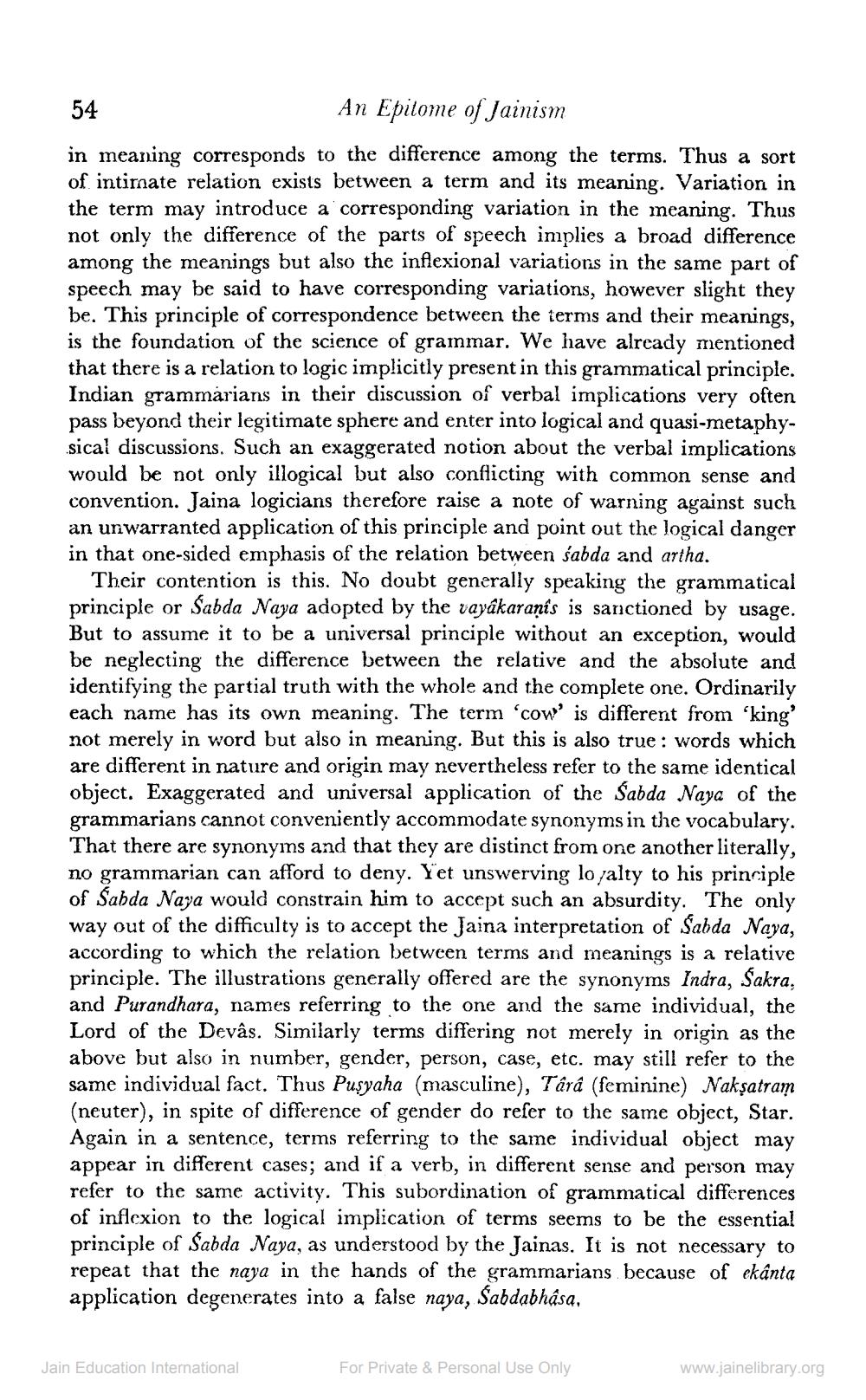________________
54
An Epitome of Jainism in meaning corresponds to the difference among the terms. Thus a sort of intimate relation exists between a term and its meaning. Variation in the term may introduce a corresponding variation in the meaning. Thus not only the difference of the parts of speech implies a broad difference among the meanings but also the inflexional variations in the same part of speech may be said to have corresponding variations, however slight they be. This principle of correspondence between the terms and their meanings, is the foundation of the science of grammar. We have already mentioned that there is a relation to logic implicitly present in this grammatical principle. Indian grammarians in their discussion of verbal implications very often pass beyond their legitimate sphere and enter into logical and quasi-metaphysical discussions. Such an exaggerated notion about the verbal implications would be not only illogical but also conflicting with common sense and convention. Jaina logicians therefore raise a note of warning against such an unwarranted application of this principle and point out the logical danger in that one-sided emphasis of the relation between sabda and artha.
Their contention is this. No doubt generally speaking the grammatical principle or sabda Naya adopted by the vayâkaranís is sanctioned by usage. But to assume it to be a universal principle without an exception, would be neglecting the difference between the relative and the absolute and identifying the partial truth with the whole and the complete one. Ordinarily each name has its own meaning. The term 'cow' is different from 'king not merely in word but also in meaning. But this is also true: words which are different in nature and origin may nevertheless refer to the same identical object. Exaggerated and universal application of the Sabda Naya of the grammarians cannot conveniently accommodate synonyms in the vocabulary. That there are synonyms and that they are distinct from one another literally, no grammarian can afford to deny. Yet unswerving lo jalty to his principle of Sabda Naya would constrain him to accept such an absurdity. The only way out of the difficulty is to accept the Jaina interpretation of Sabda Naya, according to which the relation between terms and meanings is a relative principle. The illustrations generally offered are the synonyms Indra, Sakra, and Purandhara, names referring to the one and the same individual, the Lord of the Devas. Similarly terms differing not merely in origin as the above but also in number, gender, person, case, etc. may still refer to the same individual fact. Thus Pusyaha (masculine), Tara (feminine) Nakşatram (neuter), in spite of difference of gender do refer to the same object, Star. Again in a sentence, terms referring to the same individual object may appear in different cases; and if a verb, in different sense and person may refer to the same activity. This subordination of grammatical differences of inflexion to the logical implication of terms seems to be the essential principle of Sabda Naya, as understood by the Jainas. It is not necessary to repeat that the naya in the hands of the grammarians because of ekânta application degenerates into a false naya, Sabdabhâsa,
Jain Education International
For Private & Personal Use Only
www.jainelibrary.org




